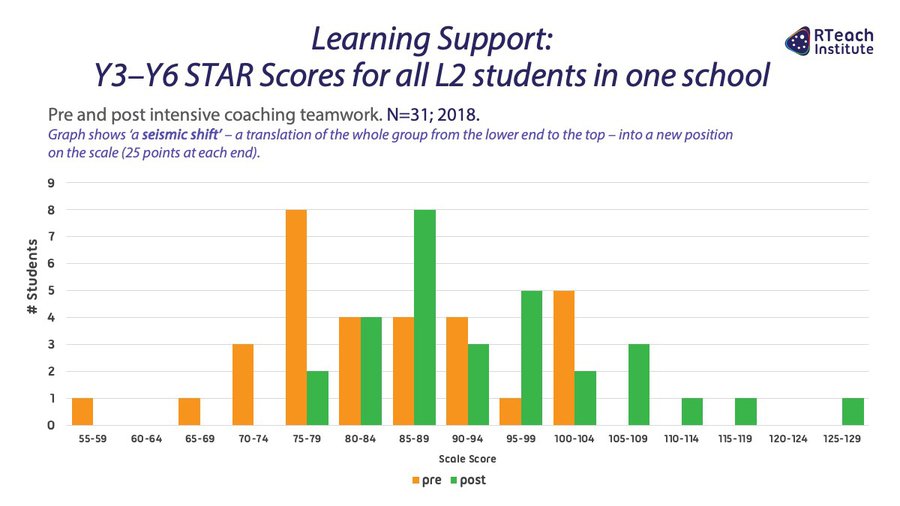RT3T™ Results in Primary and Intermediate Schools
Stunning results consistently obtained for Year 4 ākonga with Reciprocal Teaching - RT3T™
Steepest gains are for this cohort
The following 2020 graphs show Year 4 ākonga making larger gains than Year 5 and 6 ākonga, with all of the lower scoring Year 4 ākonga leaping above the national average.
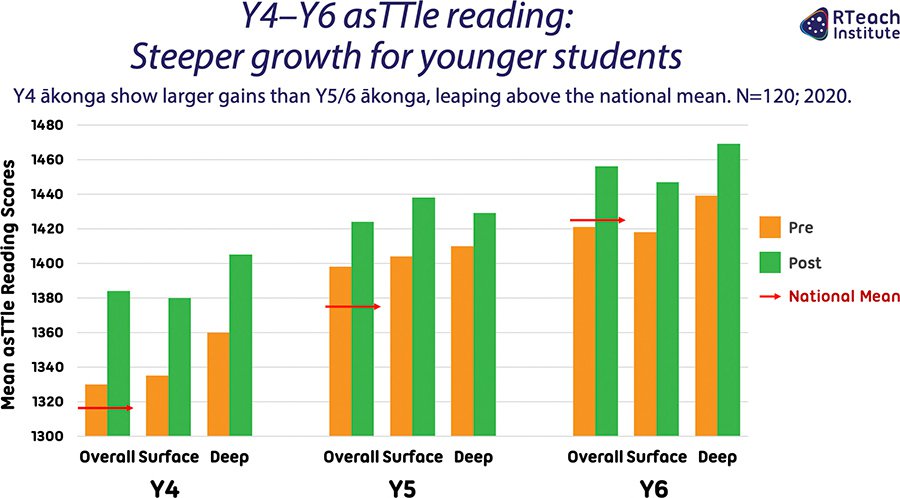
This pattern has been replicated in 3 of our primary schools. The steepest gains are for Year 4 cohorts, demonstrating again that Reciprocal Teaching - RT3T™ can provide a systemic and culture shift that ensures accelerated achievement for all ākonga – and proactive and effective inclusion.
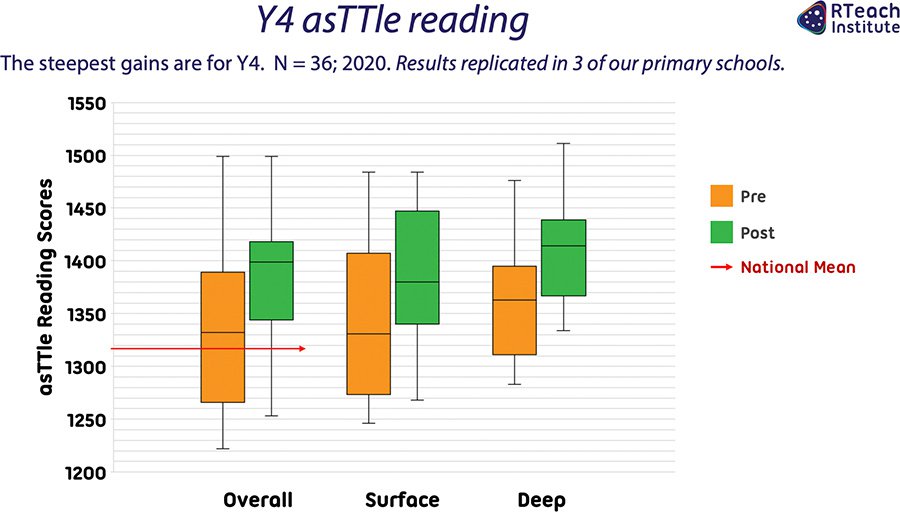
When our primary schools prioritise Year 4s, these ākonga are set up for success at one of the most optimal and formative times of their schooling years.
RT3T™ boosts thousands of Māori ākonga
When carefully implemented by a skilled trained teaching team, Reciprocal Teaching - RT3T™ has seen significant progress towards national reading norms for thousands of Māori ākonga.
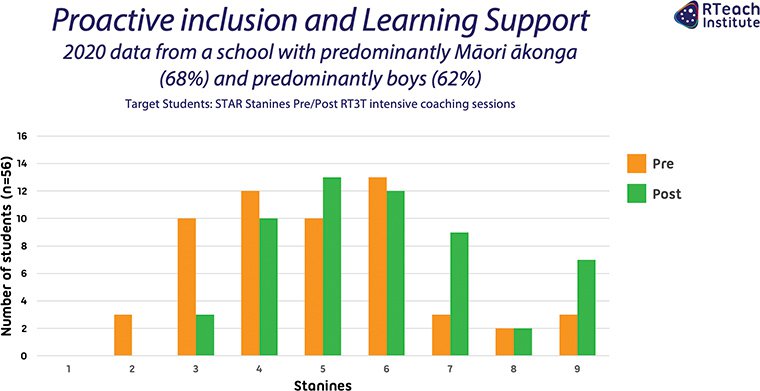
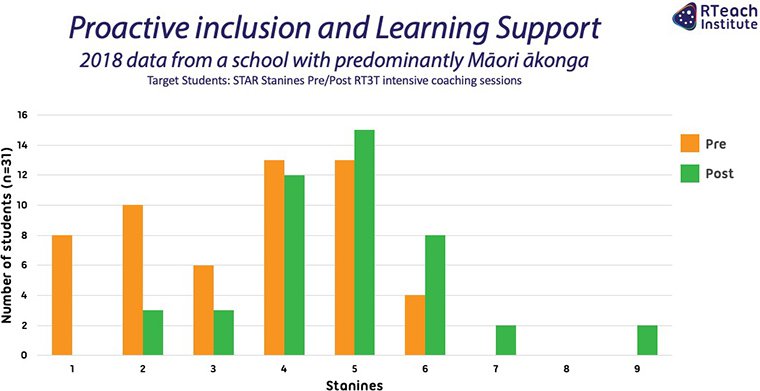
Short term and longer term
– and preventing the summer slump and the COVID slump
RT3T™ schools are continuing further with the intensive coaching – extending into every year level continuously or more variably, from year 4 to year 13, with ākonga continuing to show progress each year.
RT3T™ works with science and cross-curricular
Reciprocal Teaching - RT3T™ provides a catalyst for school leadership to strategically plan across learning areas, with a focus on inclusion, differentiated learning and overall instructional continuity for students who require extra or different support.
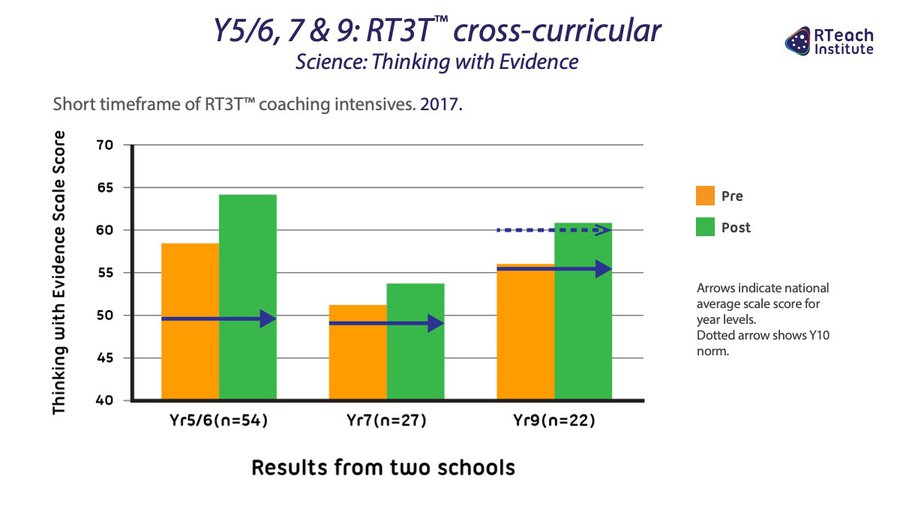
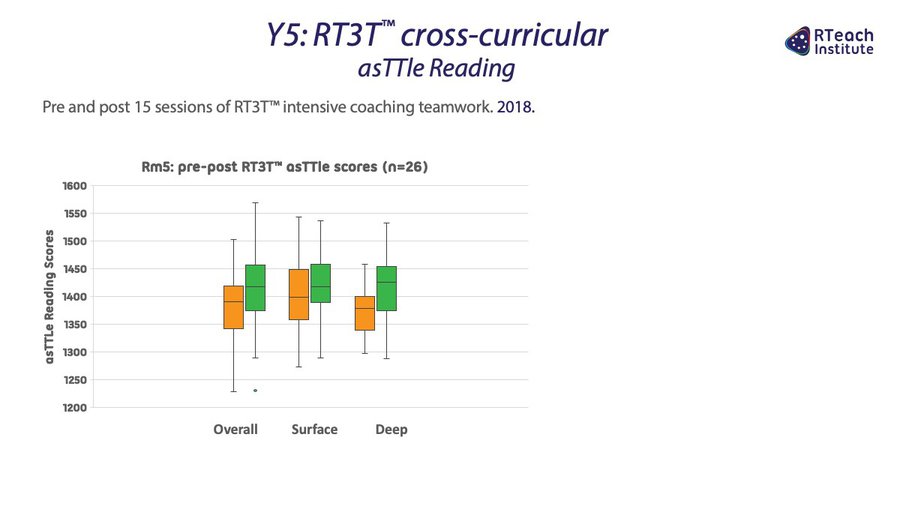
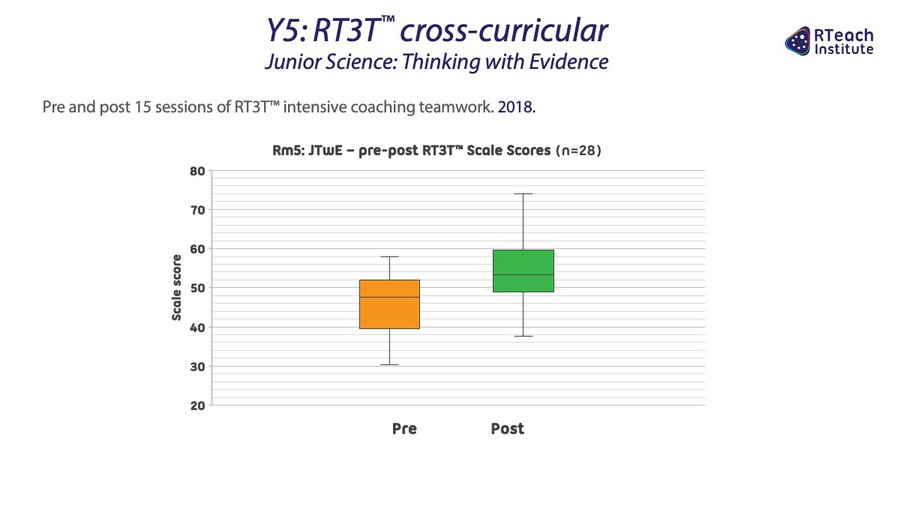
RT3T™ promotes inclusion and proactive Learning Support
- Reciprocal Teaching - RT3T™ is grounded within one of the most effective evidence-based inclusive methods we know and presents multiple opportunities within safe social contexts for diverse students to develop, practice, improve and transfer their key thinking and socio-emotional competencies for learning and life.
- When students who require extra support have scaffolded skilled support and /or adaptation of RT3T™, they can enjoy belonging to their peer group and assuming teamwork and tuakana-teina relationships, becoming empowered learners, and learning both thinking and kanohi ki te kanohi collaborative skills.
- RT3T™ includes Behaviour Skills Training (BST), for sustainably improving essential skills such as those required for communication, social situations and safety, and task engagement. Students who gain benefit from BST include those with Down Syndrome and with challenging behaviours, as well as neurodiverse students with Autistic Spectrum Disorder, Attention Deficit Disorder, Attention Deficit with Hyperactivity Disorder, Pervasive Developmental Disorder, Foetal Alcohol Syndrome.
